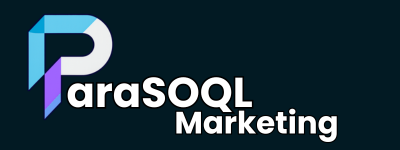What Does a Salesforce Admin Actually Do?
What are Salesforce Admin responsibilities, really? If you ask ten people in a company that uses Salesforce, you’ll likely get ten different answers—ranging from “resetting passwords” to “building automations” to “running reports.” The truth is, a Salesforce Admin is a multi-functional professional who blends technical skills, business process understanding, and strategic thinking. In this article, we’ll unpack what a Salesforce Admin actually does day-to-day and why their role is central to the success of any CRM-powered organization.

1. Core Responsibilities of a Salesforce Admin
At the most fundamental level, Salesforce Admins are responsible for maintaining and optimizing the company’s Salesforce environment. But within that broad definition are dozens of distinct responsibilities that span the technical, operational, and strategic realms.
User Management
Admins create and manage user accounts, profiles, roles, and permission sets. They ensure every user has secure, appropriate access to data and tools.
Data Management
They ensure data integrity across all objects (like Leads, Opportunities, and Contacts) through deduplication, validation rules, and import/export processes.
System Customization
Salesforce Admins configure the CRM to fit the unique needs of the business. This includes creating custom fields, record types, objects, page layouts, and more.
Workflow Automation
They use tools like Flow, Process Builder, and Workflow Rules to automate repetitive tasks, trigger alerts, assign records, and streamline operations.
Report and Dashboard Building
Admins enable teams to make data-driven decisions by building and maintaining dynamic reports and dashboards tailored to business KPIs.
Security & Compliance
They enforce data access policies, monitor system usage, and implement security protocols such as field-level security and login IP restrictions.
Training and Support
As the Salesforce champion within an organization, Admins provide training, create help documentation, and offer daily support to users.
2. Tools of the Trade
Salesforce Admins don’t just work inside the platform—they also use a host of external tools to get the job done:
Data Loader – For mass imports, updates, and deletions of records
Workbench & SOQL – For querying data and troubleshooting advanced issues
Trailhead – Salesforce’s official learning platform for continuous training
Third-party tools – Like FormAssembly, Conga, or Docusign for integrations and document management
Change Sets & Sandboxes – For deploying updates in a test-safe way
A well-rounded Admin is also familiar with AppExchange apps, REST APIs, and even a little Apex for more advanced orgs.
3. Working Across Departments
A Salesforce Admin doesn’t work in a vacuum. They collaborate closely with nearly every department:
Sales Teams rely on them for pipeline configuration, lead routing, and opportunity stages.
Marketing Teams need their help with campaign tracking, lead scoring, and integrations with tools like Pardot or HubSpot.
Customer Support uses Service Cloud, which Admins set up and optimize for case routing, SLAs, and knowledge bases.
Finance and Ops depend on Admins to build reports that track revenue, renewals, and forecast models.
In short, Admins translate business needs into Salesforce solutions.
4. Strategic Impact of a Salesforce Admin
Beyond technical know-how, what really makes Admins essential is their strategic thinking. They:
Identify inefficiencies in business processes
Implement scalable, repeatable systems through automation
Provide stakeholders with real-time insights via dashboards
Reduce reliance on manual processes and spreadsheets
Stay current with Salesforce releases to bring new features to the business
The best Admins don’t wait to be told what to do. They proactively recommend improvements and measure ROI on CRM usage.
5. Common Misconceptions
There are a lot of myths around the Admin role. Let’s clear up a few:
Myth: “Admins only reset passwords.”
Reality: That’s about 1% of what they do—if that.Myth: “We only need one Admin forever.”
Reality: As your org grows, so should your admin resources—especially if you use multiple clouds (Sales, Service, Marketing).Myth: “Admins aren’t technical.”
Reality: Admins often manage data structures, write complex formulas, and understand APIs.
6. Career Growth for Admins
Salesforce Admins have a strong career trajectory. Many move into roles like:
Salesforce Consultant
Business Analyst
Salesforce Developer
Product Manager
CRM Architect
With the Salesforce ecosystem expected to generate millions of new jobs over the next few years, skilled Admins are in high demand.
Wrapping It Up
Salesforce Admin responsibilities go far beyond just “keeping the lights on.” They design systems that enable entire organizations to run smoothly and scale smartly. A great Admin is equal parts problem solver, communicator, trainer, and innovator.
If your business runs on Salesforce, your Admin is not just a system manager—they’re a growth enabler, a change agent, and a behind-the-scenes powerhouse driving results every day.
